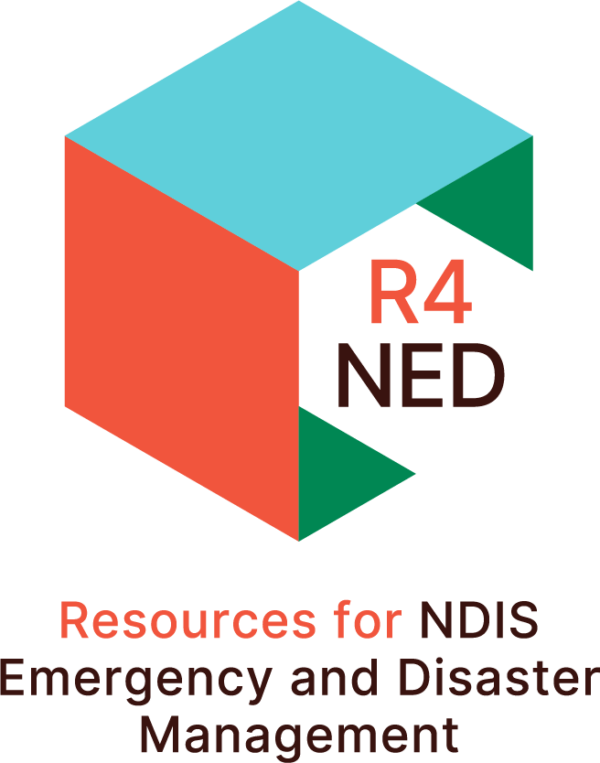 Common Questions
Common Questions
 Common Questions
Common QuestionsNDIS Providers
Inclusive emergency and disaster preparedness is a driving principle of the standard. This means that people with disabilities and their supporters must be involved in your planning and preparation for emergencies and disasters.
The standard requires providers to undertake six key activities:
-
- Risk assessment
- Organisational emergency and disaster planning
- Individual planning and continuity of support provisions
- Communication and consultation strategy development
- Training for staff
- Review and continuous improvement
Find resources about the Practice Standard, including people with disability in your planning, and how to prepare your organisation to manage emergencies and disasters here.
This means you should consider the types of supports you provide to NDIS Participants, the level of risk posed to them if these supports are disrupted or are unable to be provided, and their individual preferences about how they wish to be supported.
Depending on the nature of the service you provide, the actions you need to take may vary. For example, if you provide therapy supports to NDIS Participants in the community, your obligations will be significantly different to a Specialist Disability Accommodation service.
Refer to the R4NED fact sheet about proportionate risk for more information.
Unregistered providers “are not required to meet any specific standards beyond the basic expectations in the NDIS Code of Conduct”.
However, it is important NDIS Participants are not left exposed to risk, especially during emergencies and disasters. Applying the NDIS Practice Standard in your organisation, regardless of your registration status, will result in better planning and preparedness, response to, and recovery from emergencies and disasters.
To review the broad community expectations of expected behaviours for providers and workers involved in support delivery, refer to the NDIS Code of Conduct.
Go to the Meet the Standard section of this website to find resources that will help you to:
- understand how the standard applies to your organisation and your practices,
- prepare your organisation for emergencies and disasters, and
- put the right paperwork in place.
The R4NED resources have been created specifically for NDIS Providers to use. This website also includes links to free resources we have reviewed, and think will be useful and applicable in an NDIS context.
Your industry peak bodies and organisations that support compliance with standards may also have useful information and templates you can use.
NDIS Participants
No. The Standard came into effect in January 2022. Additional amendments were also made to Quality Indicators covering a range of existing NDIS Practice Standards that relate to emergency and disaster management.
No. The standard only applies to registered NDIS Providers.
However, it is important NDIS Participants are not left exposed to risk, especially during emergencies and disasters. The NDIS Practice Standard provides sensible steps that any provider can take that will result in better planning and preparedness, response to, and recovery from emergencies and disasters.
Broadly, your NDIS Provider should check that you have a current Individual Emergency Plan or offer you support to develop one. They should also talk to you about how they will provide support to you during and after an emergency or disaster.
They should have a plan for how their organisation will manage emergencies and disasters, and staff should be trained in how to support participants when service is disrupted.
You should be offered the opportunity to provide feedback on policies and plans, as well as on providers’ emergency responses.
Read our fact sheet about what your provider is required to do in emergency and disaster management here.
In the first instance, it is a good idea to talk to your provider if you are not happy with the support you are receiving around emergency and disaster management. You can ask a family member, friend, or advocate to help you with this.
If you are not satisfied with the response you receive from your NDIS Provider, contact the NDIS Quality and Safeguards Commission to talk to someone about what is going on. Read their information about how to make a complaint here.
Yes. While the R4NED website and resources have been made specifically for NDIS Participants and Providers, many of the resources and information may still be useful to people with disability who do not receive NDIS funding.
Check them out here.






